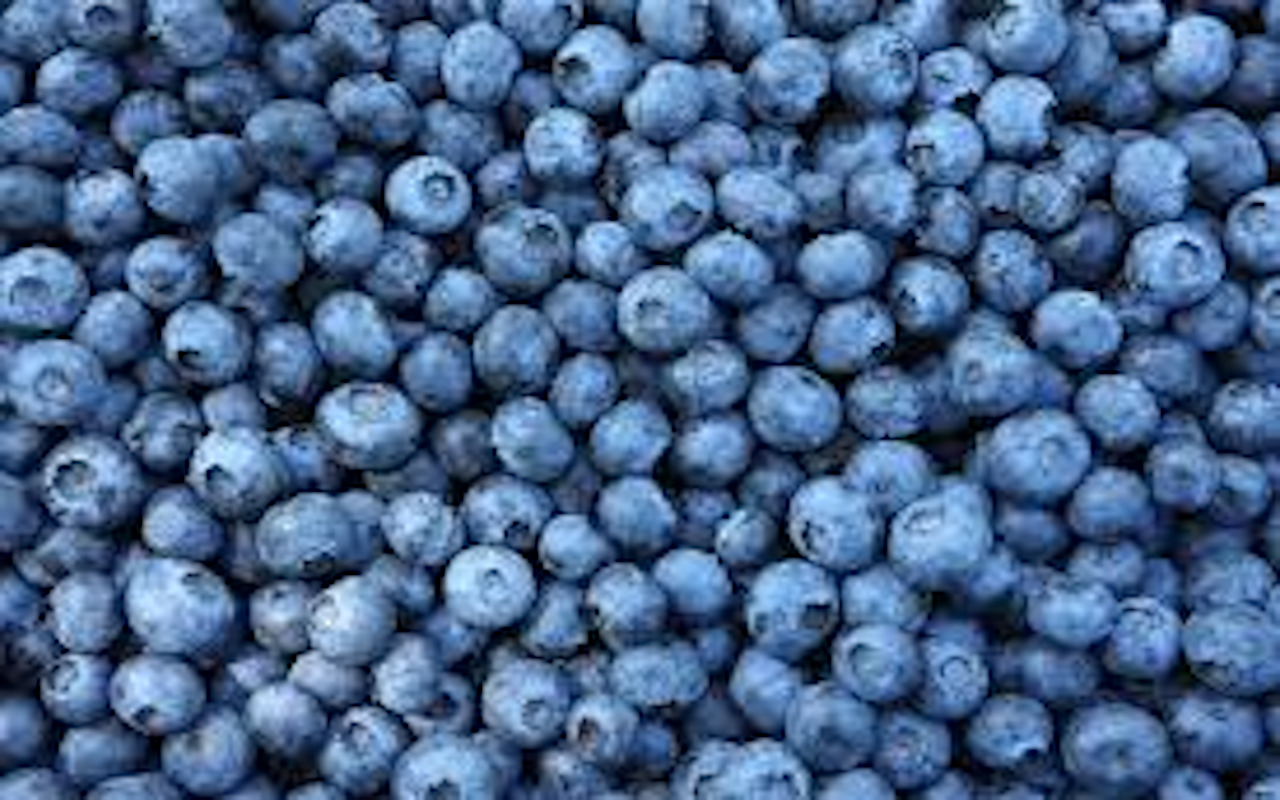A significant food safety alert has recently been issued, impacting a beloved summer fruit often featured in holiday desserts and salads. A contamination concern has escalated, leading to a major recall that consumers need to be aware of.
As many prepare for festive gatherings, particularly around the 4th of July, a specific fruit item, a popular choice for “fruity flag-inspired dessert,” is now under scrutiny. Authorities in a newly released report from a U.S. agency have confirmed the discovery of bacteria capable of causing food poisoning in a substantial quantity of a well-known berry. This urgent announcement highlights the ongoing importance of vigilance in food safety.
On Tuesday, [Date of article publication based on “this week”], the U.S. Food and Drug Administration (FDA) officially announced a recall affecting 12,000 pounds of organic blueberries. These blueberries were distributed by Alma Pak International LLC, a company based in Alma, Georgia. The primary concern stems from the potential contamination of these blueberries with a dangerous bacterium known as Listeria monocytogenes.
The FDA’s warning states clearly that “During routine testing the firm received positive test results of Listeria monocytogenes on their finished product.” This indicates that the contamination was detected through standard quality control procedures, but not before the product had already entered the distribution chain. Consumers, especially those planning holiday celebrations, are strongly advised to check if they possess any of the affected products.
Product Distribution and Identification Details
The FDA report provided crucial details regarding the distribution and specific identification of the recalled blueberries. It stated that the potentially contaminated organic blueberries were “shipped to one customer in North Carolina.” However, the report did not elaborate on the exact nature of this customer.
It remains unclear “whether the customer was a retailer, distributor, or another type of food business.” This lack of specific detail about the recipient makes it challenging for the public to ascertain precisely where the contaminated blueberries might have ended up on store shelves or in other food establishments within North Carolina. Despite this, the large quantity suggests a broad potential reach within the state.
To help consumers and businesses identify the affected product, the FDA provided the following specific product details:
- Product Name: Organic Bulk Blueberries
- Lot Numbers: The recall applies to two specific lot numbers: 13325 G1060 and 13325 G 1096. Consumers should carefully check these numbers on any bulk organic blueberries they may have purchased.
- Quantity Recalled: The total quantity involved in this recall is substantial: “400 boxes weighing 30 pounds each.” This translates directly to the 12,000 pounds (400 boxes * 30 lbs/box) of blueberries now under recall. The report did not specify “any possible individual unit sizes,” meaning the blueberries could have been repackaged into smaller containers or sold loose in bulk bins, complicating direct identification for consumers who did not purchase full 30-pound boxes.
- Recalling Firm: The company responsible for the recall is Alma Pak International LLC, located in Alma, Georgia. This firm initiated the recall after their own testing revealed the contamination.
The initial recall was reportedly issued by Alma Pak International LLC on June 9. However, it was not until “this week” (referring to the week of [Date of article publication based on “this week”]) that the FDA assigned the most severe classification: a Class I designation. This upgrade in classification underscores the gravity of the situation and the potential health risks involved, prompting a more urgent public alert.
Understanding the Severity: Class I Recall and Listeria Risks
The assignment of a Class I designation to this blueberry recall is a critical point that emphasizes the extreme danger posed by Listeria monocytogenes contamination. In the United States, “Class I recalls are the most severe type,” reserved for situations where there is a “reasonable probability that the use of, or exposure to, a violative product will cause serious adverse health consequences or death.” This classification immediately signals to both consumers and the food industry that the presence of Listeria in these blueberries is not a minor concern but a potentially life-threatening hazard.
The bacterium, Listeria monocytogenes, is a well-known pathogen in food safety circles. Its presence in food products has led to a number of high-profile recalls recently, indicating a persistent challenge in the food supply chain. Recent recalls of various food items, including “shrimp, pasta, and cheese,” have all explicitly cited the detection or the risk of this particular microbe. This pattern highlights the broad potential for Listeria to contaminate diverse food categories.
Consumption of food contaminated with Listeria monocytogenes can lead to a serious bacterial infection called Listeriosis. According to the Cleveland Clinic, the “most common symptoms” of a Listeriosis infection typically include:
- Fever: Often a sudden onset.
- Headache: Can range from mild to severe.
- Diarrhea: May be watery or bloody.
- Vomiting: Can accompany other gastrointestinal symptoms.
While these symptoms might resemble those of other common foodborne illnesses, certain individuals are at a significantly higher risk for “more serious complications.” These vulnerable groups include:
- Pregnant people: Listeriosis can lead to miscarriage, stillbirth, premature delivery, or life-threatening infection of the newborn. Symptoms in pregnant women might be mild, making diagnosis difficult.
- Newborns: Infants can contract Listeriosis from their mothers during birth, leading to severe illnesses like meningitis or sepsis.
- Older adults: Individuals aged 65 and above have weakened immune systems, making them more susceptible to severe infection.
- Individuals with weakened immune systems: This includes people with conditions like HIV/AIDS, cancer, kidney disease, or those undergoing immunosuppressive therapies (e.g., organ transplant recipients, chemotherapy patients). For these individuals, Listeriosis can lead to severe invasive infections such as meningitis (inflammation of the brain and spinal cord) or septicemia (blood poisoning), which can be fatal.
The serious nature of these potential complications underscores the critical importance of this Class I recall and the need for immediate action by consumers who may have purchased the affected blueberries. It is crucial to discard or return any product matching the recall description to prevent severe health outcomes.
Summer Food Safety: Preventing Contamination Risks
The timing of this blueberry recall, occurring as summer is in full swing, serves as a timely reminder about heightened food safety risks during warmer months. “Summer is said to be the most common season for food poisoning,” a phenomenon often attributed to a combination of factors, including outdoor gatherings and the common practice of “fare sitting out without proper refrigeration.” Warm temperatures create an ideal environment for bacteria, including Listeria monocytogenes, to multiply rapidly in food, increasing the risk of foodborne illnesses.
To minimize the risk of food poisoning, especially during summer picnics, barbecues, and other social gatherings, adherence to fundamental food safety guidelines is paramount. The core principles of clean, separate, cook, and chill are crucial for preventing the growth and spread of harmful bacteria.
Key Food Safety Practices for Summer:
Cleanliness:
- Wash hands thoroughly: Always wash your hands with soap and warm water for at least 20 seconds before and after handling food, especially raw meat, poultry, seafood, and eggs.
- Clean surfaces: Sanitize countertops, cutting boards, utensils, and dishes after each use, especially when they have come into contact with raw ingredients.
- Rinse produce: Wash all fruits and vegetables under running water before eating, cutting, or cooking, even if you plan to peel them. For produce with firm skin, like blueberries, gently rub them under water or use a produce brush.
Separate:
- Prevent cross-contamination: Keep raw meats, poultry, seafood, and eggs separate from ready-to-eat foods like fruits, vegetables, and cooked dishes. Use separate cutting boards, plates, and utensils for raw and cooked items.
- Separate in the shopping cart: Place raw meats in plastic bags to prevent juices from dripping onto other groceries.
- Separate in the refrigerator: Store raw meats on the bottom shelf of the refrigerator to prevent drips onto other foods.
Cook:
- Cook to proper temperatures: Use a food thermometer to ensure meats, poultry, seafood, and egg dishes are cooked to safe internal temperatures. For example, ground meats should reach 160°F (71°C), and chicken should reach 165°F (74°C).
- Keep hot foods hot: After cooking, if you’re not serving immediately, keep hot foods at 140°F (60°C) or warmer in chafing dishes, slow cookers, or warming trays.
Chill:
- Refrigerate promptly: Perishable foods should not be left out at room temperature for more than two hours. If the outdoor temperature is above 90°F (32°C), this time limit shrinks to just one hour.
- Proper cooling: Divide large quantities of food into smaller, shallow containers to help them cool more quickly before refrigerating.
- Transport with care: When transporting perishable foods for picnics or tailgates, use an insulated cooler with plenty of ice packs or gel packs to keep items chilled below 40°F (4°C).
- Defrost safely: Thaw frozen foods in the refrigerator, under cold running water, or in the microwave, never on the countertop.
The presence of Listeria in fresh produce like blueberries underscores that even seemingly innocuous items can pose a risk. In light of this recall and the general heightened risk during summer, the advice remains simple yet critical: “At that get-together if you’re in doubt, consider leaving it off your plate.” When it comes to food safety, it is always better to err on the side of caution.








